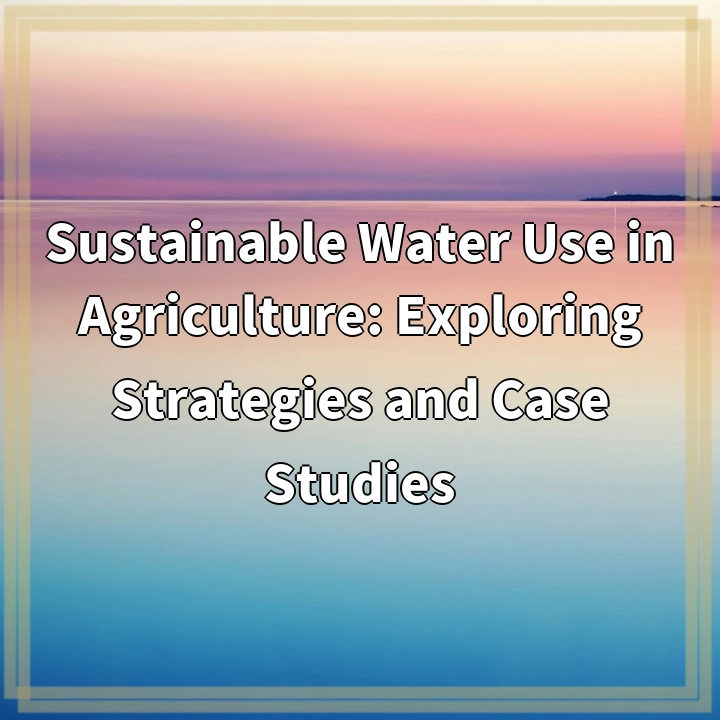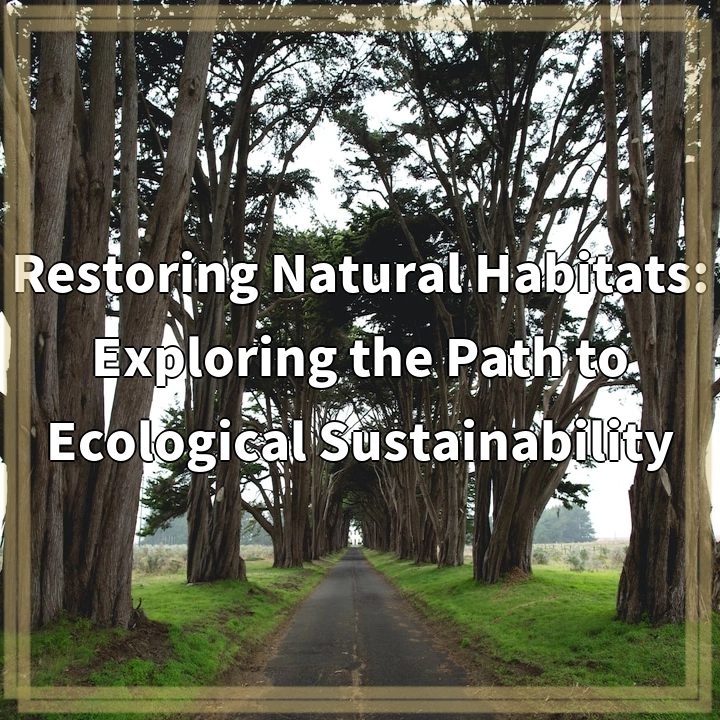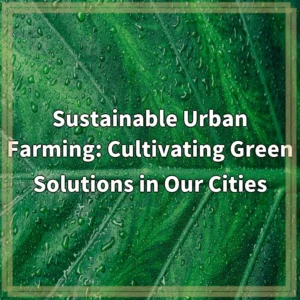
What it is:
Sustainable Water Use in Agriculture: Exploring Strategies and Case Studies
Sustainable water use in agriculture refers to the practice of utilizing water resources in a way that maintains the long-term viability of both agricultural activities and ecosystems. It involves implementing strategies and techniques that optimize water efficiency, minimize waste, and promote the conservation of water resources.
This approach aims to strike a balance between meeting the increasing food demand and ensuring the sustainable use of water resources to mitigate the negative environmental impacts associated with agriculture.
Real-world problems:
1. Water scarcity
One of the key challenges in sustainable water use in agriculture is the issue of water scarcity. With the growing global population and changing climate patterns, water availability for agricultural activities is at risk. Many regions already face water scarcity, and this situation is expected to worsen in the future. Limited access to water resources directly affects farmers’ ability to grow crops and sustain their livelihoods.
2. Water pollution
Agricultural practices can contribute to water pollution through the excessive use of fertilizers and pesticides. When these chemicals are applied to fields, they can seep into groundwater or runoff into nearby water bodies, causing contamination. Water pollution not only impacts aquatic ecosystems but also poses risks to human health when contaminated water is used for drinking or irrigation.
3. Soil degradation
Unsustainable agricultural practices, such as over-irrigation and improper drainage systems, can lead to soil degradation. When soils become waterlogged or depleted, they lose their fertility and ability to hold water. This not only reduces crop yield but also increases the risk of erosion and nutrient runoff, negatively impacting nearby water bodies.
4. Energy consumption
Water-intensive irrigation methods, such as flood irrigation, can result in high energy consumption. Many agricultural regions heavily rely on energy-intensive water pumping systems, which contribute to greenhouse gas emissions and increase the overall carbon footprint of agriculture. The high energy demand and associated costs further exacerbate the sustainability challenges in agriculture.
By exploring strategies and case studies focused on sustainable water use in agriculture, we can address these real-world problems and work towards ensuring a more resilient and environmentally friendly agricultural sector.

Solutions to Sustainable Water Use in Agriculture:
1. Implementing Water-Efficient Technologies
One of the key solutions to sustainable water use in agriculture is the adoption of water-efficient technologies. This includes precision irrigation systems, such as drip irrigation or sprinklers, which deliver water directly to the root zone of crops, minimizing water loss through evaporation and runoff.
2. Promoting Soil Health and Conservation
Improving soil health and conservation practices can help optimize water use in agriculture. This involves employing techniques such as cover cropping, crop rotation, and conservation tillage, which enhance soil structure, reduce erosion, and increase the soil’s capacity to retain water. Implementing efficient drainage systems can also prevent waterlogging and improve soil health.
3. Enhancing Water Management and Planning
Effective water management and planning are essential for sustainable water use in agriculture. This includes assessing water availability, implementing water allocation systems, and promoting water-saving strategies. Farmers can also benefit from improved water monitoring systems and data-driven decision-making tools to optimize water use efficiency.
4. Embracing Agroecological Farming Practices
Agroecological farming practices focus on managing agricultural ecosystems in a more sustainable and holistic way. By diversifying crops, integrating livestock, and enhancing natural ecosystems, these practices help mitigate the impacts of water scarcity and reduce the need for excessive irrigation.
5. Educating and Supporting Farmers
Educating farmers on sustainable water use practices and providing support through training programs and incentives is crucial. Extension services and agricultural organizations can play a significant role in disseminating information and facilitating the adoption of sustainable practices. Financial incentives, such as subsidies for water-efficient technology or conservation practices, can encourage farmers to make environmentally friendly choices.
By implementing these solutions, we can promote sustainable water use in agriculture and work towards a more resilient and environmentally conscious agricultural sector.















